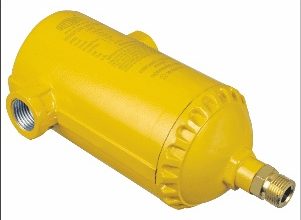Different Types of Engine Oil and Their Uses

Certain industries rely on machines and vehicles in order to function. The productivity must always be ensured to be working consistently so there would not be any delays and problems to occur during the processes. It must be made sure that it runs smoothly all the time. Thus, for these machines and vehicles to operate optimally, certain engine parts need to be lubricated with engine oil, and with any other types of oil applicable. Oil is an essential element that engines need to have in order to reduce friction that tends to increase the wear and tear of engine parts, which smoothens the entire process.
In terms of automobiles — cars, motors, and the like, it might be quite hard for you to choose the right engine oil that will let them continuously run smoothly. Stores offer a lot of different choices of oil of different brands, quantities, and weights, which serve different functions. And knowing the right one for your vehicle is not as difficult as it may seem. As long as you know what weight of oil, how often you should change it, and how much oil you should put in, you are good to go. These are the necessary figures you must know to purchase the right one for your vehicle. Most importantly, you have to know what type of oil to get. It is a critical choice that can have a pretty significant impact on your engine’s health.
Part of choosing the right oil for your automobiles, is ensuring that what you will select for your engine are of high quality. Low quality engine oil might lead to contamination. And if these contaminants were left to accumulate, they have the possibility to settle into stubborn sludge and deposits. Particularly in areas of the engine that are difficult to clean. Additionally, since it was mentioned above that you must know how often you should change the engine oil of your vehicle, you must always take note of it importantly as it can affect the overall performance of the engine. Neglecting to change your engine oil at regular intervals might lead to certain stubborn sludges to form, leading to the suffering of the vehicle performance, efficiency, as well as precious fuel economy.
Conventional Oil
The standard oil that most automobiles use would be conventional oil. It is the most used oil for drivers with simple engine designs and regular driving style. It is formulated from crude oil that has been pulled from the ground, then refined in a factory. There are various processes that are done, including several additives. It is done in order to enhance the oil’s viscosity and the engine’s protective properties. It is then bottled, then sold at automotive stores for engines.
This type of engine oil also holds the benefit of being a budget-friendly option. As means for protecting your engine and helping your car run smoothly. It is also considered to be effective in a way that there are really no bad motor oils on the market these days. As long as you specify the right weight and quantity, you can expect an optimal performance of your vehicle. However, the only downside of this engine oil is that they tend to be less refined. If compared to other types of oil, they offer a lower level of protection.
Full-Synthetic Oil
Another type of oil that engines use is the full-synthetic oil, or the synthetic motor oil. Coming from its literal sense, synthetic oil is manufactured entirely in a factory or a lab. They are chemically engineered. Thus, the oil molecules are more uniform in shape — with fewer impurities and better properties than mineral oils. Synthetic oils are also produced with higher performing additives, so they tend to perform better at high or low temperatures. They are formulated in a factory. Thus, they are deemed to be more consistent in a way that the production process of creating this engine oil holds to much more firm standards. Therefore, this makes synthetic oil more refined, and is overall better for your engine.
However, if compared to conventional oil, they are way more costly. But this is only because they carry lots of benefits as well. They tend to last longer, going for longer periods of time and distance compared to conventional oils.
Synthetic Blend Oil
For your engines, you can also have both the synthetic and natural materials to be combined as a manufactured hybrid oil. In other words, it is a blend of both conventional and synthetic oils. As a means of utilizing the benefits of the two while reducing their drawbacks. What you will get from the synthetic blend oils are pretty much exactly what you thought about. This oil provides better protection and serves better performance than a conventional oil. But still, it would not perform as optimal as the full-synthetic one. And in terms of the cost of this blended engine oil type, they are a little bit more expensive than the conventional one, but not as much as a full-synthetic.
Overall, they are pretty much the middle ground. They are perfect for those looking to reduce the costs but wanted to give their automobiles a higher performance than the standard ones.
High Mileage Oil
Another type of engine oil is the high mileage oil. This is a bit of a distinctive branch of oil that has a blend of unique additives included in the manufacturing process. They are designed to help protect engine seals, which in turn helps prevent oil evaporation, while improving the overall performance.
Actually, high mileage oils are specifically produced for vehicles, may be old or new, and with over a hundred thousand kilometers on the odometer. Manufacturing this type of engine oil incorporates a special blend of additives and formulation. It helps reduce engine oil-burnoff and also to prevent oil leaks that may occur in older or high-mileage engines. With oil-burnoff, it has the possibility to contribute to more engine wear and a decreased lifespan. Particularly for those vehicles that are getting a little long on the odometer.
Key Takeaway
The type of engine oil you should choose should vary upon the benefits you prefer to have, or your budget and type of vehicle you own. These four types mentioned above can be used on whatever automobile you have. You just have to make sure that you know the right oil that is fixed on its engine. Also, remember to change them at regular intervals to avoid future issues and problems.





